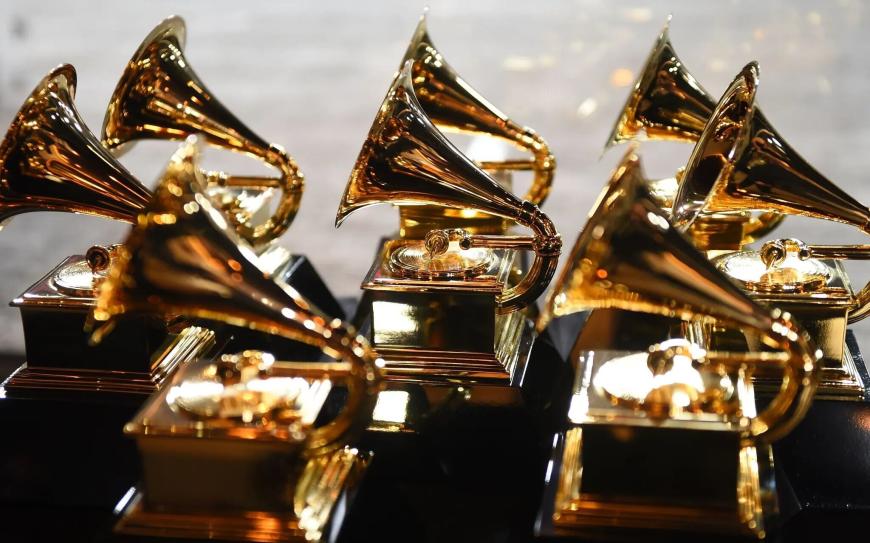At last night’s Grammy Awards, Billy Crystal spoke of the award ceremony many years ago when he met Vladimir Horowitz, and after a short pause in the silence that followed, he told the audience, “Google him!”
Yes, classical music fan(atic)s are not the primary audience for the Grammys, but they must have responded to this news from the 2023 ceremony:
Six decades after he won the first of his 31 Grammy Awards from 74 nominations, Georg Solti has lost his improbable awards leadership in a race with pop artists who have otherwise always dominated this arena. Solti died in 1997.
Until now, second place was shared by Beyoncé and Quincy Jones, with 28 awards each, followed by Alison Krauss and Chick Corea, with 27.
Long thwarted by the “Beyoncé paradox,” the singer led this year’s field with nine nominations, the latest of 88 during her career. She needed to win only four to become the most-awarded musician in Grammys history. Given the consensus about her album Renaissance, which was the vehicle for eight of her nine nominations, she seemed likely to take the record, but it was still a matter of suspense if she could do it.
She did, with Best Dance/Electronic Recording — “Break My Soul,” Best Dance/Electronic Music Album — Renaissance, Best Traditional R&B Performance — “Plastic Off the Sofa,” and Best R&B Song — “Cuff It.”
Hungarian British conductor Solti was music director of the Chicago Symphony for two decades and produced more than 250 recordings. One of his works, a complete set of Richard Wagner’s Der Ring des Nibelungen, published between 1958 and 1965, has been cited by critics and many publications as the greatest recording ever made.
In her acceptance speech, Beyoncé said, “I’m trying not to be too emotional. I’m trying to just receive this night. I want to thank God for protecting me. Thank you, God.
“I’d like to thank my Uncle Johnny, who’s not here. But he’s here in spirit. I’d like to thank my parents — my father, my mother, for loving me and pushing me. I’d like to thank my beautiful husband, my beautiful three children who are at home watching.”
Among highlights in the Grammys’ history, the first awards in 1959 went to a classy group: Frank Sinatra, Ella Fitzgerald, Van Cliburn. This year’s 91 Grammys were handed out at a preshow event in Los Angeles and at the main ceremony at Crypto.com Arena on Sunday night.
The top award, Album of the Year, went to Harry Styles for his Harry’s House, which also won Best Pop Vocal Album.
First lady Jill Biden presented a new award, Best Song for Social Change, to the imprisoned Iranian musician Shervin Hajipour for his song “Baraye.” He wrote the song in support of last fall’s protests there led by women and young people against government oppression. The video was viewed 40 million times on social media in recent weeks.
Biden also presented the Grammy for Song of the Year to Bonnie Raitt for “Just Like That.” The 2023 Grammies also gave the rare EGOT status — an acronym for someone who’s picked up Emmy, Grammy, Oscar, and Tony Awards — to actress Viola Davis.
“It has just been such a journey,” Davis, 57, said of her memoir Finding Me as she accepted the Grammy for best Audiobook, Narration & Storytelling Recording.
Both Best Rock Performance and Best Rock Song went to Brandi Carlile for “Broken Horses.” Ozzy Osbourne won Best Metal Performance for “Degradation Rules” (featuring Tony Iommi) and Best Rock Album for Patient Number 9.
Winners in the classical music categories:
Best Engineered Album, Classical
Bates: Philharmonia Fantastique — The Making of the Orchestra, Edwin Outwater (conductor), Chicago Symphony Orchestra
Producer of the Year, Classical
Judith Sherman
Best Orchestral Performance
Works by Florence Price, Jessie Montgomery, Valerie Coleman, Michael Repper (conductor), New York Youth Symphony
Best Opera Recording
Blanchard: Fire Shut Up in My Bones, Yannick Nézet-Séguin (conductor); Angel Blue, Will Liverman, Latonia Moore, and Walter Russell III (soloists); David Frost (producer); Metropolitan Opera Orchestra and Chorus
Best Choral Performance
Born, Donald Nally (conductor); Dominic German, Maren Montalbano, Rebecca Myers, and James Reese (soloists); The Crossing
Best Chamber Music/Small Ensemble Performance
Shaw: Evergreen, Attacca Quartet
Best Classical Instrumental Solo
Letters for the Future, Time for Three, Xian Zhang (conductor), The Philadelphia Orchestra
Best Classical Solo Vocal Album
Voice of Nature: The Anthropocene, Renée Fleming (soloist), Yannick Nézet-Séguin (pianist)
Best Classical Compendium
An Adoption Story, Kitt Wakeley (composer); Starr Parodi (pianist); Jeff Fair, Starr Parodi, and Kitt Wakeley (producers); London Symphony Orchestra
Best Contemporary Classical Composition
Contact, Kevin Puts (composer), performed by Time for Three, Xian Zhang (conductor), and The Philadelphia Orchestra
Best Music Film
Jazz Fest: A New Orleans Story, Various artists; Frank Marshall and Ryan Suffern (video directors); Frank Marshall, Sean Stuart, and Ryan Suffern (video producers
